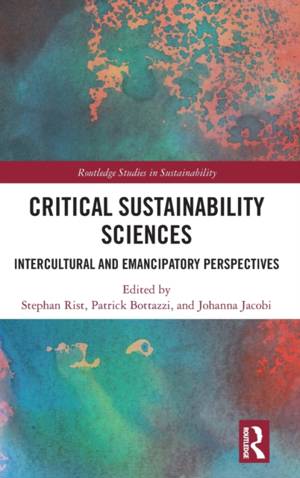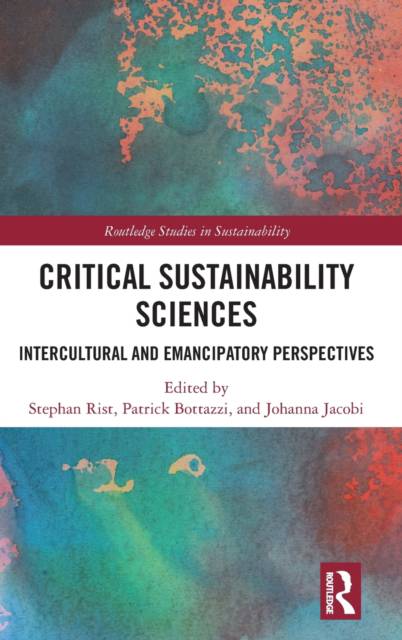
- Retrait gratuit dans votre magasin Club
- 7.000.000 titres dans notre catalogue
- Payer en toute sécurité
- Toujours un magasin près de chez vous
- Retrait gratuit dans votre magasin Club
- 7.000.0000 titres dans notre catalogue
- Payer en toute sécurité
- Toujours un magasin près de chez vous
Critical Sustainability Sciences
Intercultural and Emancipatory Perspectives
Description
This book explores Critical Sustainability Sciences, a new field of scientific inquiry into sustainability issues. It builds on a highly novel integration of elements from relational ontologies, critical theory, political ecology, and intercultural philosophy in support of emancipatory perspectives on sustainability and development.
The book begins by uncovering the weaknesses of mainstream sustainability science and debates on sustainable development. The new field of Critical Sustainability Sciences has grown out of a deep engagement with relational ontologies, which helps to overcome the dualist ontology underlying mainstream notions of sustainability and development. Dualist ontologies reinforce problematic anthropocentric divisions, for example, between humans and nature, subjects and objects, mind and matter, body and soul, etc. Examples from indigenous peoples in Bolivia, India, and Ghana - as well as integrative movements in Chile, Brazil, and Europe - show that relational conceptions of life, rooted in ecosophy and cosmosophy, can provide an intercultural philosophical foundation for Critical Sustainability Sciences. The book concludes by describing three key topics for exploration in Critical Sustainability Sciences: societal reorganization in view of emancipatory, existential, and cognitive self-determination; living labor and commons; and the development of new comprehensive relational scientific paradigms.
This book will be of great interest to students, scholars, and practitioners of emancipatory and intercultural approaches to sustainability and development.
Spécifications
Parties prenantes
- Editeur:
Contenu
- Nombre de pages :
- 308
- Langue:
- Anglais
- Collection :
Caractéristiques
- EAN:
- 9780367489410
- Date de parution :
- 02-08-23
- Format:
- Livre relié
- Format numérique:
- Genaaid
- Dimensions :
- 156 mm x 234 mm
- Poids :
- 630 g

Les avis
Nous publions uniquement les avis qui respectent les conditions requises. Consultez nos conditions pour les avis.





